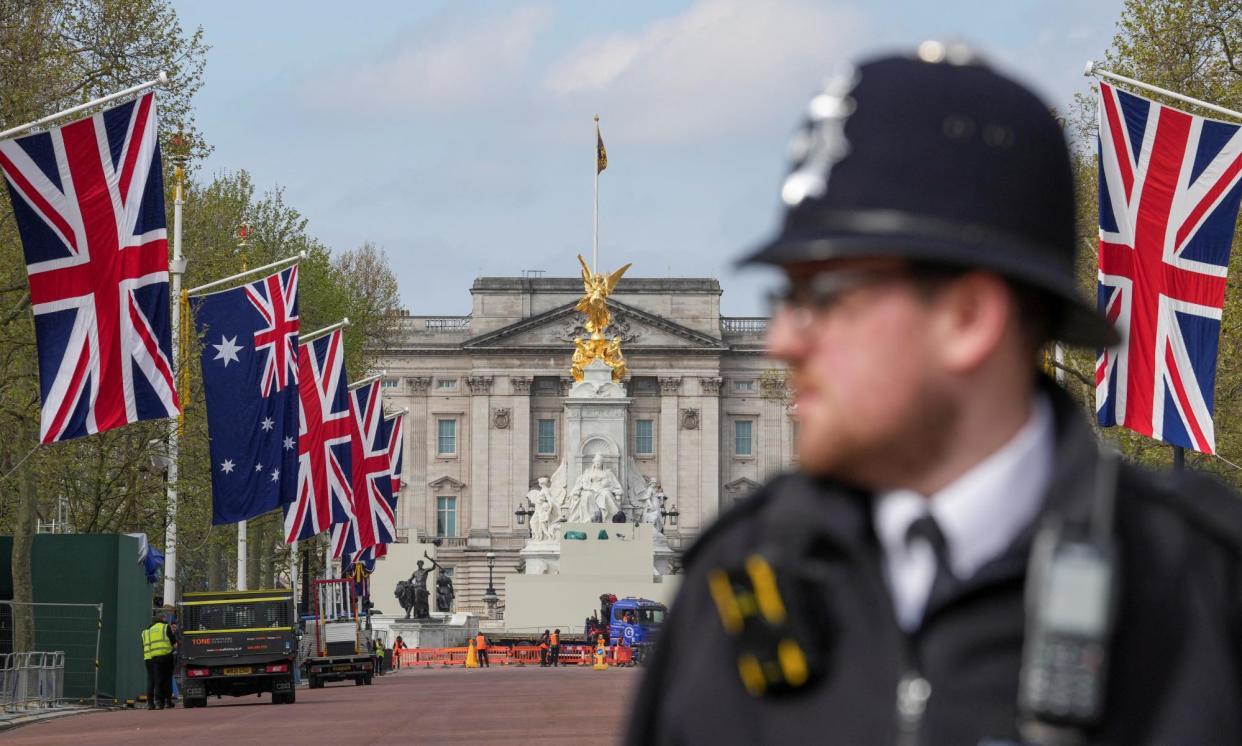Security costs of UK royals cannot be made public, judges rule

Judges on a freedom of information tribunal have ruled that the cost of protecting members of the royal family cannot be revealed to the public.
The two judges made their decision after hearing detailed evidence behind closed doors from a senior Home Office official. They ruled that this secrecy prevented them from explaining in their public judgment fully why they had accepted the official’s evidence.
The judges Lynn Griffin and Jo Swaney rejected an attempt by the Guardian to establish how much of taxpayers’ money was spent on protecting the Windsors.
They concluded that publishing the overall bill for providing protection, such as armed bodyguards and patrols at royal homes, could encourage would-be attackers.
Their decision means the bill for protecting the royal family – thought to run into tens of millions a year – will remain an official secret. It also means that without knowing the figure for this bill, it is in effect impossible for the public to know the total cost of funding the monarchy.
During the two-day tribunal last November, which encompassed secret and open sessions, the Guardian argued that a combined figure for the cost of providing security for the royal family between 2017 and 2020 would enhance public debate about the cost of the monarchy.
The media group argued that the figure would be so broad that it would not help anyone who may potentially attack the royal family. The Guardian expressly did not seek a breakdown of how the money was spent or how much was spent on individual members of the Windsor family.
The judges set out the full reasons for their decision in a confidential ruling, which was sent to the Home Office but not the Guardian. The judges added that “in the interests of open justice, we have nonetheless sought to include as much detail as possible” in the public ruling.
Related: Tribunal to hear Guardian appeal over security costs for royal family
They concluded that the Home Office’s arguments in favour of continuing secrecy were “well-founded” because potential assassins or attackers could be emboldened.
“The consequence of this is that their confidence in their ability to carry out a successful attack is increased, rightly or wrongly, and it is this increased level of confidence that gives rise to the real risk of the potential hostile actor in fact carrying out an attack,” they said.
The judges added that the “credible” evidence given by the Home Office witness – Thomas Rutherford, the head of the royalty VIP and MP security unit – in private, as well in public, persuaded them of the gravity of this risk.
Rutherford had been permitted to give evidence in private, which the Home Office said was necessary to protect national security. The Guardian was provided with a gist of the closed session, but was not allowed to attend.
The Guardian argued that similar information for the total bill of protecting British MPs and the US president was routinely published.
The judges dismissed this argument, saying these comparisons were not valid, after accepting evidence given in private by Rutherford. The judges said their dismissal of this argument was based on his secret evidence and could not be explained in public.
The monarchy is funded mainly through a mechanism known as the sovereign grant, which stands at £86m and is due to rise next year by 45% to £125m. This, however, does not include the security bill.

 Yahoo News
Yahoo News 
